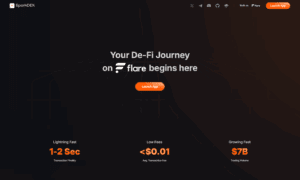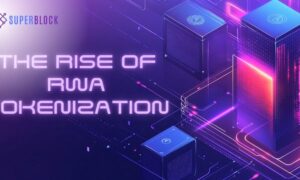ArbitrumDAO and research-focused decentralized autonomous organization (DAO) RnDAO have collaboratively developed a new entrepreneurship initiative called the ArbitrumDAO Co.Lab. The goal is to empower innovation in collaboration technologies – tools for organizational management, governance, community building and other aspects of future of work.
The program includes two core components:
Fellowships
A 3-month paid fellowship for 6 early-stage entrepreneurs to deeply research problems and opportunities in the collaboration technology space. Fellows will receive a $2,000 monthly stipend. Activities include user research, expert mentorship, networking events, and more to validate ideas and build expertise.
Venture Building
Following the fellowship, one venture will be chosen to join RnDAO’s product ecosystem and receive a grant of 50,000 ARB tokens from ArbitrumDAO. The venture will benefit from ongoing support in areas like recruiting, operations, access to networks and customers.
Focus Areas
Key topics of exploration include decentralized organizational management, community incentivization structures, decision-making frameworks, and other tools to enhance coordination, accountability and productivity.
The collaboration technology industry is poised for immense growth, with market estimates reaching $380 billion by 2030. More fluid, decentralized organizational models are expected to transform how societies collaborate and address global problems.
The Co.Lab fellowship intends to drive forward cutting-edge research and ventures to lead this new paradigm. In turn, a thriving ecosystem focused on collaboration is hoped to benefit growth, adoption and governance for communities like the Arbitrum DAO.
Application Timelines
The application deadline for the first cohort is December 10th, 2023. Applicants can sign up on the Co.Lab website. The site also offers more details on schedules, selection criteria, and goals of the program.
The Coming Wave of Collaboration Innovation
We stand on the cusp of a new era in how humans, teams, and organizations self-organize and work together. The last few decades delivered astounding advances in connecting people across digital networks. Yet most of our management philosophy and coordination infrastructure remains rooted in outdated 20th century ideas and tools.
Companies still operate as machine-like bureaucracies while value creation increasingly comes from fluid, cross-functional teamwork and crowdsourced knowledge. Centralized digital platforms capture immense profits by locking users into closed ecosystems and profiting from their data. Yet people yearn for more user agency, privacy, and control in how their contributions are governed.
The answer resides in reinventing the very DNA of human collaboration with new decentralized technologies. The components for this revolution already exist: cryptocurrencies demonstrate self-executing agreements and incentive alignment, DAOs provide transparent democratic governance, Web3 emphasizes permissionless data ownership. Combined intelligently, these building blocks can reshape how people work together at a fundamental level.
The results would unleash greater creativity, productivity, accountability and meaning across all facets of collaboration. Novel tokenized incentives can better link contributor effort to sustainable reward systems. Flexible reputation mechanisms help lend confidence for high-stakes coordination absent traditional signifiers like college degrees or job titles. Permissionless data layers enable portable digital identities, credentials and relationships – unlike social graphs locked up by Facebook and LinkedIn.
Embedding these components natively into the heart of collaboration tools avoids the inefficiencies of rigid centralized platforms. Modular architectures controlled by users allow flexible composability to meet evolving needs, escaping vendor lock-ins. Decentralized infrastructure enhances security, censorship resistance and privacy compared to hackable corporate data warehouses.
The culmination offers a future where fulfilling, high-impact work is far more accessible outside traditional gatekeepers like schools or managers. A participatory economy fueled by aligned incentives, community validation and user ownership generates benefits for all involved rather than concentrating profits to a select few. Problems ranging from climate change to mental health can tap decentralized expertise like never before feasible.
Naturally, propelling this monumental shift from established routines poses complications around adoption, incentives, governance and more. Usability often lacks behind the ideals. But the foundations now exist for determined innovators to cement these breakthroughs into the building blocks of future collaboration technologies. Much as open source software upended entrenched industry norms not long ago, the coming wave of collaboration infrastructure holds potential to radically decentralize and empower the way humans work together.



































